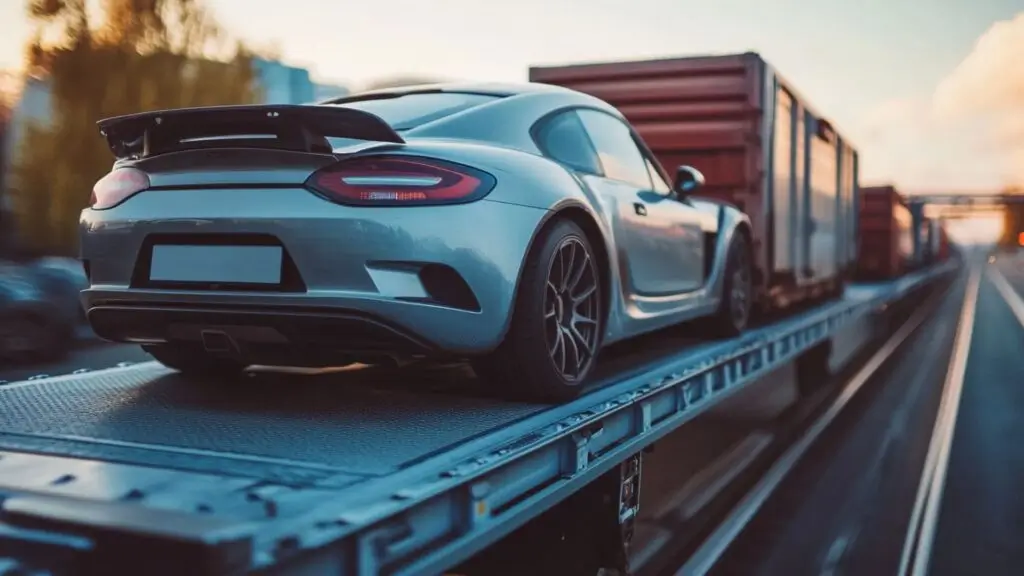
Open vs Enclosed Car Shipping: What to Know Before You Book
Shipping a car is an important decision that requires careful planning. Many people choose to ship their vehicles across the USA because it’s a cost-effective solution. Understanding open vs enclosed car shipping options is crucial to making the right choice for your needs.
This guide will help you understand the different types of car transport, compare open versus enclosed shipping methods, and choose the best option based on your budget and vehicle type. Open transport is more affordable and widely available, while enclosed shipping offers superior protection for luxury or classic vehicles.
We’ll also show you how to select reputable transport companies, what factors affect shipping costs, and ensure your vehicle’s safety during transit. Whether you’re relocating, buying a car from another state, or sending a vehicle to a family member, knowing the differences between shipping methods will help you make an informed decision.
What is Open Car Transport
Open car transport is the most popular method for shipping vehicles nationwide. Cars are loaded onto two-level, open-air trailers, leaving them exposed to weather and road conditions. This is the most common and affordable option, typically costing about half as much as covered transport for cars. Open transport works well for a wide range of vehicles, including sedans, SUVs, and trucks, and it’s widely available with many carriers offering frequent routes.
Here are the main features:
- Affordable: Significantly cheaper than enclosed transport
- Common: Used for most vehicle shipments across the country
- Versatile: Accommodates various vehicle types and sizes
- Accessible: More carriers and routes available
- Exposed: Vehicles face weather and minor debris risks
While open trailer shipping is affordable, it offers less protection than enclosed shipping. Vehicles may encounter rain, sun, dust, or road debris that could cause minor cosmetic damage. For most everyday vehicles, the cost savings outweigh the minimal risk of protection. However, if you own a high-value, classic, or delicate vehicle, enclosed transport may be a better choice.
What is Enclosed Car Shipping
Enclosed car shipping is a premium transport method where vehicles travel in fully enclosed trailers with solid walls, a roof, and a floor. This provides maximum protection from weather, road hazards, and debris. Unlike open transport, enclosed shipping offers complete protection for your vehicle, making it ideal for luxury, classic, or high-value cars. When comparing open vs enclosed car shipping, the price difference is significant — enclosed transport costs 50-100% more than open transport due to specialized equipment and limited capacity — typically only 1-6 vehicles per trailer compared to 8-10 for open trailers.
Here are the key features of enclosed car shipping:
- Superior Protection: Shields vehicles from rain, sun, dust, and debris
- Specialized Service: Designed for high-value, vintage, or exotic cars
- Limited Capacity: Carries fewer vehicles, ensuring careful handling
- Fewer Carriers: Less availability can increase cost and wait times
- Premium Cost: A Higher price reflects enhanced security and care
Enclosed shipping is less common than open transport because of its specialized nature and higher cost. The closed trailers protect vehicles from environmental damage and potential scratches, offering peace of mind for owners of valuable cars. However, limited carrier availability may not be suitable for every budget or timeline.
Cost Comparison: Open vs Enclosed

Open car transport typically costs 30-60% less than enclosed carrier car shipping. This price difference comes from several factors: open trailers are larger, carry more vehicles (8-10 versus 1-6), and require less specialized equipment. Enclosed trailers carry fewer cars and need specialized handling, which drives up prices.
Several factors affect shipping costs for both methods:
- Distance: Longer routes increase prices for both open and enclosed transport
- Season: Winter or stormy weather can raise costs, especially for enclosed shipping
- Vehicle Size: Larger vehicles cost more to ship due to space requirements
- Lead Time: Last-minute bookings often cost more for both methods
- Route Popularity: Less common routes may have higher prices
Open car transport costs suit budget-conscious owners with standard vehicles, while enclosed shipping is ideal for high-value cars that need extra protection. Always compare quotes from multiple carriers to find the best option for your needs.
When to Choose Open Car Shipping
Open car shipping is the cheapest and fastest option for most vehicles. With more carriers and larger trailers available, scheduling is quicker and costs are lower. This method works well for sedans, SUVs, and trucks. While vehicles are exposed to weather and road debris, damage is rare. Your car may arrive dirty or with minor dust accumulation, but significant damage is uncommon.
Let’s discuss pros and cons of enclosed vs open car shipping:
| Pros | Cons |
| Lowest cost option | Exposed to weather elements |
| Fastest scheduling and delivery | Risk of minor debris or dust |
| Widely available nationwide | Vehicles may arrive dirty |
| Ideal for standard vehicles | Less protection than enclosed |
Choose open car shipping for budget-friendly transportation of everyday vehicles when speed and cost are more important than maximum protection. For high-value, classic, or delicate vehicles, enclosed shipping provides better safety and peace of mind.
When to Choose Enclosed Car Shipping
Enclosed transport offers maximum protection for your vehicle. Covered transport for cars shields vehicles from weather, debris, and road hazards, making this method ideal for classic, exotic, luxury, or high-value vehicles. It costs about 50-100% more than open transport, and fewer carriers mean slower pickup times and longer wait periods.
Why choose enclosed car shipping?
- Maximum Protection: Shields vehicles from rain, sun, dust, and debris
- Specialized for Valuables: Perfect for classics, exotics, or luxury cars
- Secure Handling: Smaller loads ensure careful, attentive transport
- Peace of Mind: Eliminates worry about cosmetic or environmental damage
The primary drawbacks are higher costs and longer wait times resulting from limited carrier availability. Choose enclosed transport when your vehicle’s value, condition, or sentimental importance demands extra care. For standard everyday vehicles, open transport is more practical and affordable. Prioritize enclosed shipping for irreplaceable, collectible, or highly valuable cars.
Book the Right Option at Onyx Auto Transport
Choosing the right shipping method with Onyx Auto Transport is straightforward. First, evaluate your vehicle’s value and condition. Select open transport for standard cars to save costs, or choose enclosed shipping for luxury, classic, or exotic vehicles that need complete protection. Onyx offers both options nationwide with trusted and reliable carriers.
Here are the benefits of choosing Onyx:
- Complete Protection: Enclosed trailers shield vehicles from weather and debris
- Comprehensive Insurance: Coverage up to $100,000 for damage or loss
- Flexible Pickup: Schedule within 2-5 days to match your timeline
- Door-to-Door Service: Convenient pickup and delivery anywhere nationwide
- Transparent Pricing: Clear quotes with no hidden fees
Always verify insurance coverage before booking any transport service. Onyx ensures transparent quotes and works only with reliable, vetted carriers for both open and covered vehicle transport options. Get an instant quote and book online, or call Onyx Auto Transport today to speak with a shipping specialist.
Frequently asked questions
Open transport utilizes open-air trailers that expose vehicles to the weather, while enclosed transport employs fully covered trailers that provide complete protection.
Enclosed shipping typically costs 30-60% more than open transport due to limited carrier availability, smaller capacity, and specialized equipment requirements.
Open transport exposes vehicles to rain, sun, dust, and road debris, which can cause dirt accumulation or minor scratches. However, serious damage is rare.
Yes, enclosed shipping may take longer due to the limited availability of carriers and fewer frequent routes compared to open transport.
No, personal items are typically prohibited in vehicles during transport for safety and insurance reasons. Please check with your carrier for specific details regarding their policies.
While not legally required, luxury, classic, exotic, and high-value cars are strongly recommended for enclosed transport to prevent potential damage and maintain their condition and value.

